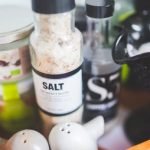Ramadan Tips | Part 1 – Foods To Eat During Ramadan
The holy month of Ramadan is a 4-week period, during which Muslims fast, avoid certain foods, abstain from pleasures, and pray more often. Ramadan is a time of spiritual reflection and one of the main goals of it is to become closer to God.
However, due to the exclusion of certain foods, it is recommended that you pay a bit more attention to the nutritional side of Ramadan, especially if you are an active trainee. In this article, we’ll give you a list of the foods you should focus on during the holy month.
The Change Of Habits
One of the things about Ramadan that we need to pay more attention to, is that it MASSIVELY shifts your eating frequency & pattern. During the holy month, Muslims consume food ONLY before dawn (called “Suhoor”) & after sunset (Called “Iftar”). This leaves a big window of fasting time, meaning that your morning & evening meals should be abundant in nutrients, to keep you energized and satiated for the entire duration of your fast.
Suhoor Foods
If you want to have energy for all your physical and mental activities between Suhoor & Iftar, you MUST make sure that your first meal is dense in nutrients.
Furthermore, you should choose food sources that are not too dry, but rather ones that will keep you hydrated, as well as drink plenty of water during meals. The latter is important because as per the Islamic rules of fasting, no food or drink can be consumed during your fast.
And so, each Suhoor meal has to :
- Keep you satiated
- Keep you energized
- Keep you hydrated
- Provide micronutrients
Here are our best picks for Suhoor foods:
- Eggs
If you’re fasting for 12 hours, you MUST make sure to have high protein & high dietary fat foods in your diet, since this is what will keep you satiated for the most part. Eggs are one of the best foods you can have during the holy month, simply because they provide plenty of quality protein, fats, and micronutrients.
The best thing? Eggs can be boiled, scrambled, and even made into an omelet – Whatever your taste buds like!
- Starchy vegetables, fruits & Oats
To further boost the satiating index of your suhoor meals, you can include food products that are abundant in dietary fiber & quality carbohydrates. Dietary fiber is not really absorbed by the body, but it slows down digestion, thus granting a gradual increase of energy & a full stomach for longer.
The best picks here are starchy vegetables like carrots and potatoes, along with fruits and oats.
- Micronutrient-rich products
Now, especially when Ramadan falls in the warmer months, it is very important to consume food products that have decent amounts of vitamins and minerals in them. This is important because, during warmer months, you sweat a lot during the day, thus excreting water & micronutrients that your body needs.
The best food products you can have during suhoor, which will give you those micronutrients, are foods like milk, yogurt, as well as fruits, and veggies.
Iftar Foods
Alright, it’s been roughly 12-14 hours since your last meal and it is now time to break the fast with a post-sunset meal! As important as Suhoor is, it’s just 50% of the whole thing, as iftar nutrition too, requires more of your attention. One of the key considerations is to break your fast with a balanced plate, which will still allow you to meet all the body’s needs for essential nutrients and compensate for any elements you may have lost during the fasting period.
It is also recommended that you start off with the lighter foods on your plate, to wake up your digestive system and signal it that it’s time for a large meal!
Here are our best picks for your iftar meals:
- Halal meats
After a prolonged period of fasting, your body will LOVE a solid amount of high-protein food. Halal meats can be consumed during iftar, as they will give your body plenty of essential protein, fats, as well as certain micronutrients like iron.
This, in turn, will keep you full and satiated and won’t leave your stomach to screech in the time before you fall asleep. TIP: Try to break your fast with a healthy drink and eat some fruits before eating any meat.
- Fruits & Vegetables
As we already mentioned, fasting, and especially fasting during the warmer months, may lead to the excretion of certain essential vitamins and minerals. This is why, even at iftar, it is important to consume vitamin & mineral-rich foods, such as fruits and vegetables. You can (and should) assemble two plates of leafy and starchy vegetables, along with fruits like bananas, citrus fruits, dates, and raisins.
- Nuts
If you tend to be someone who’s hungry all the time, then perhaps the best way to deal with this is to consume nuts! Nuts are low in volume, high in calories, and rich in dietary fats, along with certain micronutrients. Still feeling hungry after a bowl of meat, vegetables, and some fruits? Eat a handful of nuts!
Take-Home Message
For the most part, Ramadan is a time during which one must be more focused on one connection with God, as well as their own spiritual path. Though this is a time when any physical pleasure should be avoided and reflected upon, you still have to give your body the nutrients it needs, to sustain healthy functioning.
Ultimately, because you will be fasting for the most part, you must focus on a couple of things:
- Eating protein & fat-rich foods to keep you satiated
- Eating vitamin and mineral-rich foods to optimize physiological function
- Drinking plenty of fluids
By taking care of all 3 aspects, you will be able to have enough energy for the entire day, without having to think too much about food, during your fast. Now, it is important to know what to eat during Ramadan, but one of the most important things is to know what to AVOID.
In the second part of the Ramadan article series, we’ll give you insight on some of the WORST food/drink choices you can make during Ramadan.
See you there!













